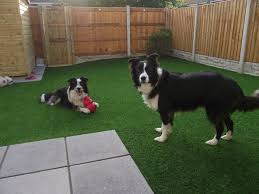Border Collies are intelligent and healthy dogs. They can be your best companions If trained well. As a Border Collie owner, you must be thinking about if your Border collie is fully grown at 6 months of age. In this article, we are going to have a look at the factors affecting Border Collies growth and how much is a 6 months old Border collie grown.
Understanding 6 months old Border Collie GrowthPuppyhood – The Early Days
As a Border Collie dog is born, it relies on the milk of its mother. As soon as the dog open its eyes and start walking, you may start giving the soft food to your Border collie pup. This period is crucial for their socialization and bonding with both their littermates and humans.
Rapid Growth – First Few Months
Border Collies are grown fast between the age of 4 months to 6 months. They grow physically in this time period. A 6 month old Border Collie is in its development period and they need proper care, diet and exercise. Regular veterinary check-ups are crucial during this period to monitor their progress.
Adolescence – 6 to 12 Months old Border Collie
During the 6 months of age, Border Collies enters the adolescent phase. In this phase, your Border Collies growth slow down. Their posture and physique changes so they try to adjust with the changes. You might see your dog lazy and in distress. But, the 6 month old Border Collie is trying to adjust with the physical changes.
Border Collies Young Adulthood – 1 to 2 Years
Border Collies have reached their fully height between the age of 1 to 2 years. But, their physical development is still under way. Mental and emotional maturity also takes place during this phase.
See also: How much should a 6 month old border collie sleep?
Signs of Full Maturity in Border Collies
Determining whether your Border Collie is fully grown at 6 months involves looking for signs of physical and behavioral maturity:
- Physical Markers: While your pup’s height might be close to their adult size, their body might still fill out over the next several months. Observe any changes in bone structure, muscle definition, and coat quality.
- Behavioral Cues: Adult behaviors, such as full house training and a more predictable temperament, might start to emerge. However, some aspects of their behavior, such as hyperactivity and playfulness, might continue well into their second year.

Factors Affecting Border Collie Growth Genetics
Genetics play a significant role in a Border Collie’s growth pattern. If the puppy’s parents are on the larger side, the pup is likely to have a more extended growth period and reach full maturity later.
Border Collies Nutrition
It is important to provide proper nutritional food to your Border Collie for its proper development and growth. Moreover, it is also recommended to contact the vet and see if you are feeding it properly or not.
Exercise needs of your Border Collie
Exercise is very important for Border Collies on daily basis, for their physical development. However, excessive exercise or intense physical activity at a young age can potentially hinder proper growth. Strike a balance between playtime and rest to support healthy growth.

Caring for Your Growing 6 months old Border Collie
As your Border Collie navigates through these growth phases, it’s essential to provide them with the best care possible:
- Nutrition: Consult your veterinarian for a proper diet plan that supports your pup’s growth and development needs.
- Exercise: Engage your Border Collie in age-appropriate physical activities to ensure healthy bone and muscle development.
- Training and Socialization: Use positive reinforcement techniques to train your pup and expose them to various environments and experiences for well-rounded socialization.
When Do Border Collies Reach Full Maturity?
Full Grown Border collies Size
Border Collies typically reach their full height between 12 and 15 months of age. However, they might continue filling out and gaining muscle mass until around 18 months. It’s important to note that individual dogs may have variations in their growth timeline.
Mental Maturity of your Border Collie
Mental and physical stimulation is very important for Border collies. These can be increased by playing different games with your 6 months old border collie and taking it on an exercise. Both these characteristics keep on developing even after the 6 months of age.
See also: When Are Border Collies Fully Grown
Conclusion
Although, Border Collies are reached to their full height during the 6 months of age, but their physical development is still under way. While they undergo significant growth during the first year, reaching their full physical and mental maturity takes more time. Genetics, nutrition, and exercise are important factors in the growth period of a Border Collie dog. It is important for you as a dog owner to provide proper nutrition and care to your dog.
FAQs about the 6 months old Border Collie dog
Can I expect my Border Collie’s energy levels to decrease as they mature?
While energy levels might become more manageable, Border Collies are an active breed and often retain their playful nature.
Should I adjust my pup’s diet as they transition from rapid growth to adolescence?
Yes, consult your vet for a diet plan that meets your pup’s changing nutritional requirements.
Are there any health concerns specific to Border Collie growth?
Yes, keeping an eye out for conditions like hip dysplasia is important. Regular vet check-ups can help detect and address such issues.
How can I mentally stimulate my growing Border Collie?
Engage in puzzle games, training sessions, and interactive toys to keep their agile minds engaged.
Is early training necessary for a Border Collie pup?
Absolutely. Early training and socialization lay the foundation for a well-behaved and confident adult Border Collie.




